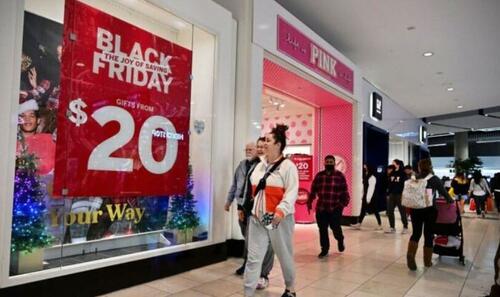Recession Is Needed To Curb Inflation
Share

Recession Is Needed To Curb Inflation
Authored by Law Ka-chung via The Epoch Times,
The year 2023 seems a turnaround year for the world economy: Not only in the real estate sector, where prices are on the rebound. Indeed, inflation and the interest rate hike will still be the focus, at least for the first half of 2023; recession, if any, should be later. The picture is getting clearer: inflationary pressure stems mainly from the strong labour and spending markets. Nevertheless, it is unclear whether the current policy stance is restrictive enough to bring inflation down meaningfully. The actual reason behind this is the monetary policy is very slow in transmission.
In principle, interest rate hike targets mostly credit, which, as the logic goes, drives inflation. Using the entire historical time series of Federal funds rate and consumer credit from the Federal Reserve, the accompanying chart shows that the year-over-year change of fund rates leads year-over-year percentage change of consumer credit by two years (compare the horizontal time axes). Theoretically, the price of lending (or cost of borrowing) instantly affects lending (or borrowing). But it affects only the new loans while all other outstanding ones are unaffected.
This is easiest seen in the mortgage market, where only newly made agreements would apply. It takes time for loans to mature, roll over, and produce an effect. Since the tenor of lending is usually longer than that of deposits (the intrinsic nature of banks to earn interest margin), it is easier to see broad money (M2, which mainly comprises deposits) slow down first before credit. Why the time lag is two years depends heavily on the effective tenor of lending, which is mainly empirical. It can vary,
Continue reading Recession Is Needed To Curb Inflation at ZeroHedge.













